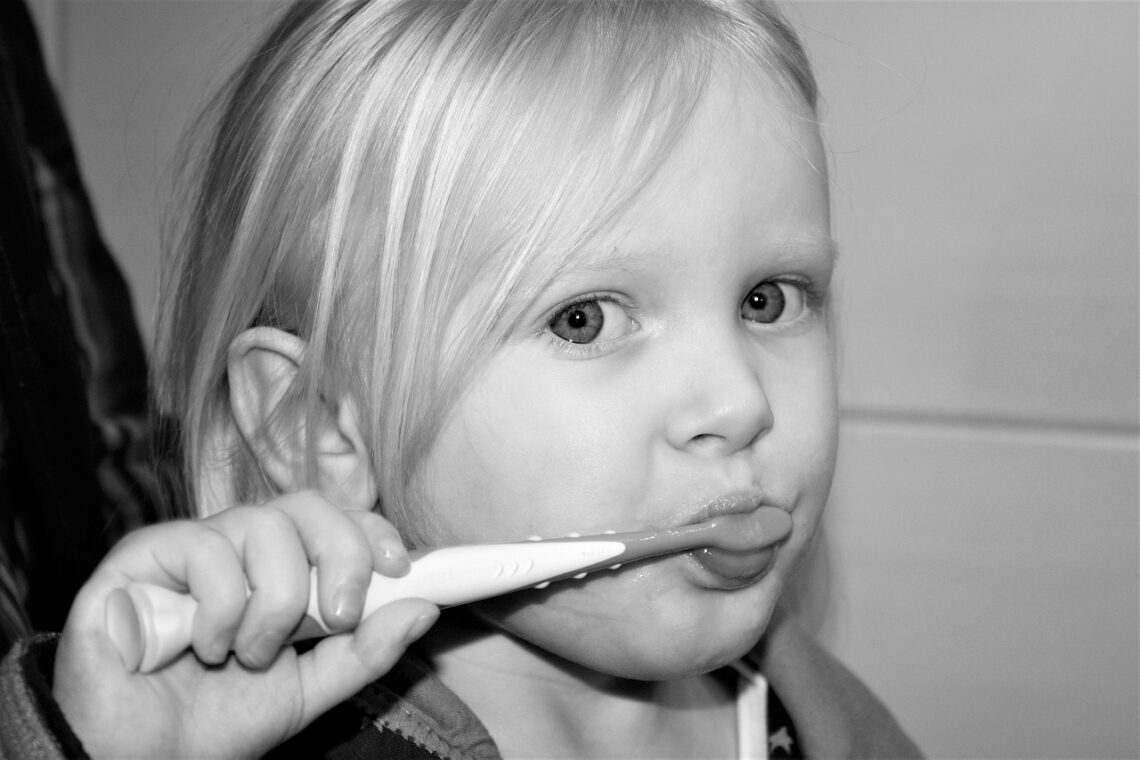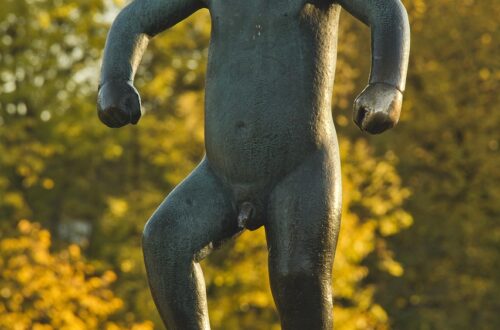
How to Teach Your Child Hygiene
When you teach your child about hygiene, you will probably find that the challenge isn’t showing them how to stay clean. Children are smart, and understand from an early age how teeth brushing, hand soap, and showers work.
The main problem you are likely to encounter is how to teach your child the importance of hygiene. They might know how to shower, or bathe, but they showered already this month, so do they really need to do it again?
Even more so, if you can convince them that being clean is good, motivating them to engage regularly in daily hygiene tasks can be difficult. Knowing how to use a toothbrush is great. Few children race remember every morning and evening.
Why do children avoid basic hygiene tasks?
Most adults like to be clean. Even more so, we don’t want to smell bad. It can be hard to understand how children are so lackadaisical about washing.
So why doesn’t your child like hygiene tasks, and can you teach them to enjoy caring for their bodies?
There are many reasons that children may avoid hygiene tasks. Sometimes it could be related to sensory dislikes, such as not liking the taste of toothpaste, or how cold the bathroom is when they undress for a shower. Often, however, it is just that there are more exciting things to do. There are games to play or pictures to draw. Washing their hands or taking a shower might seem like a chore.
Motivation to stay clean
Adults have a variety of reasons to stay clean. We understand the social ramifications of leaving the house when we are stinky or have dirty clothes. Some of us know people who have lost teeth due to poor oral care, so we have learnt, through observation, the importance of brushing our teeth. We also are good at forward thinking. We know how nice it feels to have just had a shower, or how yucky it feels to wake up in the morning if you haven’t brushed your teeth the night before.
Understanding of socially accepted behaviour, consequences for actions, and logical forward thinking are not skills that your child will have fully developed yet. This means that we need to help them to find the motivation to stay clean.
Reward-based learning
You can encourage this motivation by using rewards-based learning. The great news is your child’s brain is set up to learn this way.
To be clear, this doesn’t mean they get a prize every time they wash their hands. Rather, it is helping them find pleasure in the activity itself. If a child enjoys an activity, or finds pleasure in an act, or the outcome of an act, the brain will release dopamine. Dopamine helps your child’s brain to associate the action with a good feeling. This can help to motivate them to repeat the action. The neurological system in the brain that regulates this reward response is called the mesolimbic system. It can be used to help teach your child motivation for good hygiene.
The problem is that it relies on the child enjoying the hygiene tasks. Often they don’t. On their own, things like washing hands, brushing teeth and washing their face can be boring. To use the mesolimbic system, we need to get creative and add a little fun.
How to teach your child hygiene through fun
If you make hygiene tasks fun in themselves, it will be easier to motivate your child. Of course, there are things that they will have to do, that are not fun at all. This doesn’t mean your child only does things that they enjoy. However, if there is a fun way of doing something, embrace it.
Here are a few ideas:
- Put on a favourite song during shower time, and see if your child can wash their body and hair before the song is up.
- When they are changing for a bath or shower, put the laundry basket just outside the bathroom and challenge them to throw their clothes into the basket.
- Put a 30-second timer on while they are washing their hands, and see how many different animals they can list before the time is up.
- Make teeth brushing part of a silly challenge. You could have a buzzer or silly noise you play on your phone. When it goes, the children have to race to do 3 challenges. For example, brush their teeth for two minutes, do 3 star jumps and finish by picking up toys off their bedroom floor. Just a note on this one, racing against each other might end up in fights. It is often simpler to race children against the clock.
Stack Habits with fun
Some tasks your child will not enjoy, however creative you get with them. You can still use fun or pleasure to instill these habits, but you may have to stack them.
Perhaps your child hates showers. You have tried music, games, and many other things. Nothing will change their mind. If you can’t make the shower fun or pleasurable, stack the habit of the shower with a fun reward after. It could be that you heat a towel on a radiator and as soon as they are out you wrap them up and read them a story while they dry. Maybe they don’t like washing their hands, but you let them use nice hand lotion after.
In time, the understanding that the disliked task will become associated with the reward they get from completing it, and they may find it easier to tolerate.
How to teach your child independence with hygiene
Independence in a child is linked with better mental health, increased confidence and motivation. Sounds great, right? Unfortunately, to begin with, giving little ones independence is also slower and messier. It takes time for children to be able to perform hygiene tasks on their own, but with a little patience, they will get there.
Teach your child independent hygiene through scaffolding
There are things that your child can do independently, things that they can do with support and other things they can’t fathom being able to do yet. Scaffold learning is about bridging that gap by working in the zone of proximal development, a fancy way of saying working on things that they can do with support.
https://trainingexpress.org.uk/personal-hygiene-for-kids/To teach your child hygiene through scaffolding, look for little things that they might be able to do with your help. Then start by talking to them while you do the task, narrating what you are doing and why. It might be how you squeeze the right amount of toothpaste onto the brush, or why you are checking if their clothes are clean before they leave the house. Then let them have a go with you by their side. In time they will have that new skill under their belt, and you can move onto a new one. Here are some basic hygiene skills that you can teach to your child.
They will probably need support at the start, and things that are obvious to you won’t be to them.
Remember to aim for progress and not perfection. Be realistic about the fact that it will be messy for a little bit while they learn, and that is okay.
Teach your child hygiene through routine
Routines are fantastic for children. They give a child predictability, but also independence. Children understand what they are expected to do, and when they are expected to do it.. This means that they can do what they need to do, with confidence.
Of course, you don’t need to regiment your whole day. Instead, create pockets of routines for specific times. Wake up routines, and bedtime routines are great ones to add, as well as things like routines for leaving the house, or for before meals.
When you are building routines, keep them simple, and easy to remember.
Offer choice
As adults we often have preferences in regards to soaps, lotions, toothpastes and so on. Where possible, offer your child a choice too. This can help them feel involved, and therefore more motivated in the process. With so many hygiene products on the market it may be easier to ask them to choose between two or three scents, or products so your child isn’t overwhelmed.
You can also offer other choices, such as bath or shower. If they choose bath, do they want bubbles, toys or both.
Children have very little control or agency over their lives. You can’t ever give them complete control. You need to ensure that they are healthy, safe and clean. There is room within those parameters, however, to give them choice.
If your child has a sense of control, they are more likely to engage, thrive and succeed. This an outcome I am sure that you want.
A Final note
Although children don’t naturally crave hygiene, with support they can be taught the how, and the why, of looking after their bodies and staying clean.
It will be frustrating at times. Hang in there. The messy moments will pass. Be patient with them, and have a little fun along the way.
I wish you all the peace,
Hannah Louise
References
“America’s ToothFairy – 8 Tips and Tricks to Make Brushing Teeth Fun.” Americastoothfairy.org, 2024, www.americastoothfairy.org/news/8-tips-and-tricks-to-make-brushing-teeth-fun. Accessed 12 Mar. 2025.
Arnall, Judy. “When Do Children Understand “Consequences?”” Judy Arnall – Parenting the Digital Generation, Judy Arnall – Parenting the Digital Generation, 18 Feb. 2019, judyarnall.com/2019/02/18/when-do-children-understand-consequences/.
Cerino, Anna. “The Importance of Recognising and Promoting Independence in Young Children: The Role of the Environment and the Danish Forest School Approach.” Education 3-13, vol. 51, no. 4, 8 Nov. 2021, pp. 685–694, www.tandfonline.com/doi/full/10.1080/03004279.2021.2000468, https://doi.org/10.1080/03004279.2021.2000468.
Hämmerer, Dorothea, and Ben Eppinger. “Dopaminergic and Prefrontal Contributions to Reward-Based Learning and Outcome Monitoring during Child Development and Aging.” Development Psychology, vol. 48, no. 3, 2012, https://doi.org/10.1037/a0027342. Accessed 10 Mar. 2025.
Health Direct. “Personal Hygiene for Children.” Healthdirect.gov.au, Healthdirect Australia, 2019, www.healthdirect.gov.au/personal-hygiene-for-children.
“Hygiene for Toddlers and Children.” Www.cambspborochildrenshealth.nhs.uk, www.cambspborochildrenshealth.nhs.uk/child-development-and-growing-up/hygiene/hygiene-for-toddlers-and-children/.
Levine, Alexandra, and Laura Philips. “How to Build Independence in Preschoolers.” Child Mind Institute, 2022, childmind.org/article/how-to-build-independence-in-preschoolers/.
Lewis, Robert G., et al. “The Brain’s Reward System in Health and Disease.” Advances in Experimental Medicine and Biology, vol. 1344, no. 1344, 2021, pp. 57–69, https://doi.org/10.1007/978-3-030-81147-1_4.
Mitton, Betty L., and Dale B. Harris. “The Development of Responsibility in Children.” The Elementary School Journal, vol. 54, no. 5, Jan. 1954, pp. 268–277, https://doi.org/10.1086/458585.
NHS. “Hygiene.” Cambspborochildrenshealth.nhs.uk, 2024, cambspborochildrenshealth.nhs.uk/child-development-and-growing-up/hygiene/.
Parents League of New York. “Children Need a Sense of Control.” Parents League of New York, 31 Mar. 2020, www.parentsleague.org/blog/children-need-sense-control.
“Why We Should Give Kids More Control over Their Lives and How to Do It.” Www.debbieausburn.com, www.debbieausburn.com/post/why-we-should-give-kids-more-control-over-their-lives-and-how-to-do-it.
Willard, Dr Marcy. “Hygiene in Childhood – Marcy Willard PhD.” Marcy Willard PhD, 25 Oct. 2024, marcywillardphd.com/hygiene-in-childhood/.







